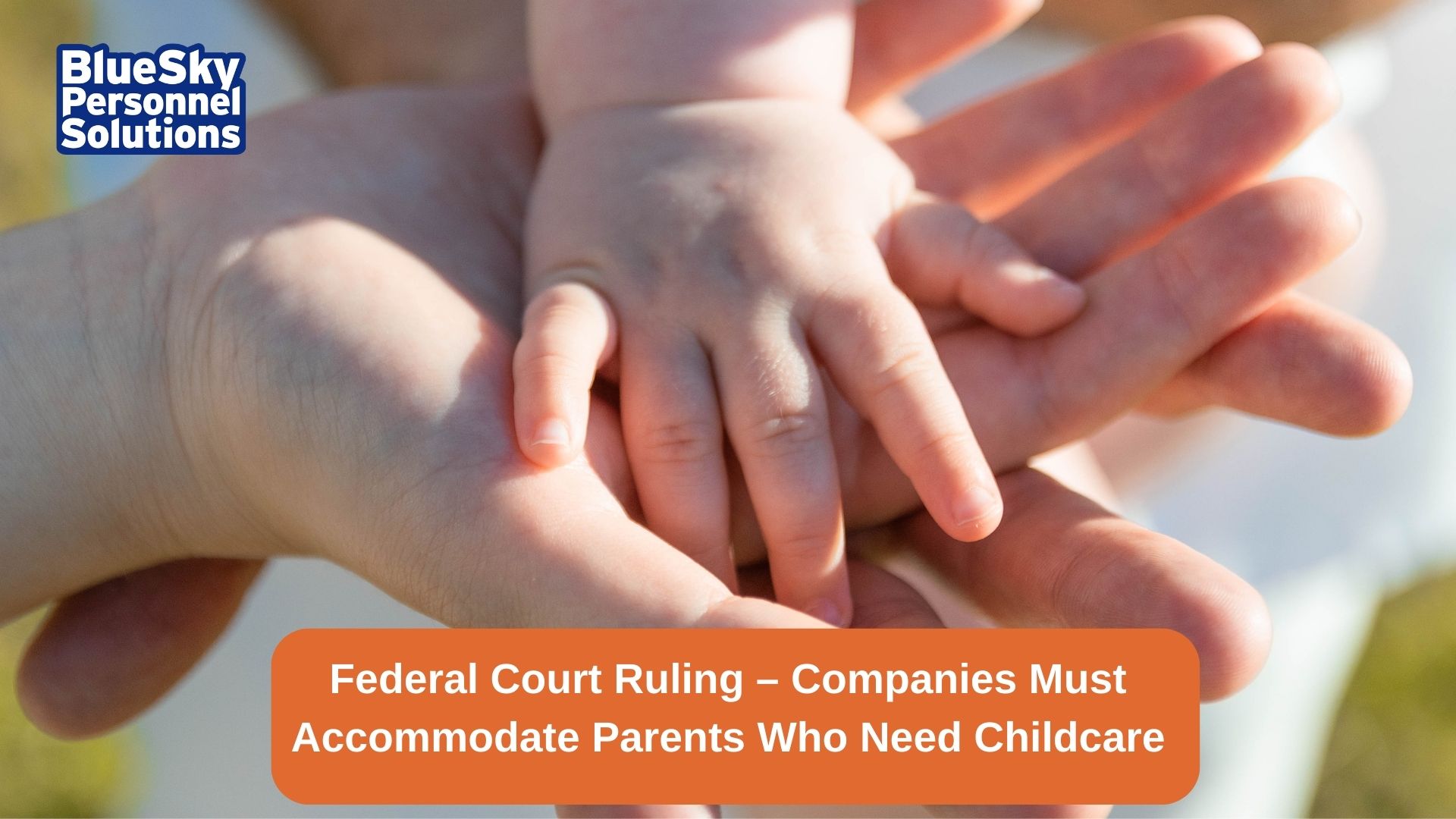Federal Court Ruling – Companies Must Accommodate Parents Who Need Childcare
Federal Court Ruling – Companies Must Accommodate Parents Who Need Childcare
Special feature: Q&A with Employment Lawyer, Stuart Rudner
Canadian employers may have been caught off-guard this week by a Federal Court ruling that says companies must accommodate parents who need childcare.
Justice Leonard Mandamin recently found Canada Border Services Agency discriminated against its former employee, Fiona Johnstone, when it failed to honour her request to change her irregular, rotating full-time shifts to more stable ones so she could arrange childcare. Ms Johnstone forfeited her full-time position and took on regular part-time hours, a move which, in essence, affected her chances of future promotions, greater work benefits and pensions, etc.
This landmark decision could profoundly alter the way human rights laws are applied in Canada. To understand what this means for employers, we spoke to a leading employment law specialist, Stuart Rudner, partner at Rudner MacDonald LLP. Here’s our Q&A with him:
Q: What are the real implications of this ruling for the employment landscape in Canada?
A: This federal court ruling confirms how the implications of family status on human rights legislation in the workplace continue to expand. There are a few important takeaways for employers here:
- It is becoming increasingly important for employers to maintain open dialogue with their employees. That communication allows both parties to assess what options are available for accommodation requests.
- Where there is a legitimate need, employers are expected to accommodate “reasonable” employee requests relating to childcare obligations.
- The difficulty is, determining undue hardship calls for a subjective assessment. Employers must assess accommodation options, and employees are not necessarily entitled to their preferred form of accommodation. Assessing undue hardship will include consideration of the cost to the employer, and large organizations will generally be expected to accommodate to a greater extent than employers of lesser means.
- The other risk that both employers and employees should be aware of is – this kind of ruling could lead to hiring managers thinking twice before employing women of childbearing age.
Q: The Canadian Border Agency has said to the media, that they now have a policy to address this kind of issue. How would you advise other employers approach policy-making to address parental needs?
A: Because every company and situation is different, they need to be assessed individually, so it’s not possible to have an all-encompassing, ready-made policy that works for everyone. In the case of the Canada Border Agency, it appears the organization did not believe that childcare obligations has to be accommodated. The Tribunal and Court concluded otherwise. Though it may sound self-serving, I really do believe it’s important for employers to speak to a lawyer when any issue arises with potential legal implications. Otherwise, they may be surprised when they subsequently face a lawsuit and significant liability. While legal fees can be expensive, preventing a problem will always be cheaper than fixing it.
Q: How can companies make sure all employees feel like they are getting fair treatment (e.g. ensuring those without children don’t end up feeling like they are shouldering more of the workload versus employees who are parents)?
A: In reality, this is a very difficult issue to address. Employers should approach each accommodation request on a case-by-case basis.
I would say again, that it is important for employers to maintain regular communication with their workers. Employees want to feel that their concerns are heard and respected by their employer. Otherwise, they will be disengaged and are likely to go elsewhere.
If an accommodation is made for an employee, and it ends up impacting their colleagues, it’s important to establish a proactive workplace culture where open communications can address those concerns.
Q: You were recently quoted in the Globe and Mail as saying: “Employers who once believed family matters have no business in the workplace will have to start rethinking their position.” Does this ruling suggest that employers now need to operate on a “family comes first” basis?
A: Ten years ago, I don’t think anyone would have foreseen that childcare needs would be protected by human rights legislation. But that’s what we saw this week. There is clearly a trend developing in terms of human rights legislation with respect to parents taking care of their children. As our population continues to change in Canada, from childcare to elder care, family-related issues will continue to gain more prominence in the coming years.











